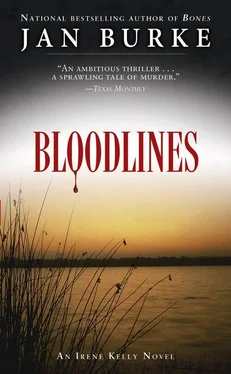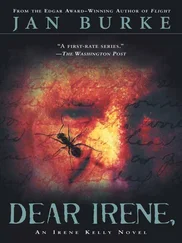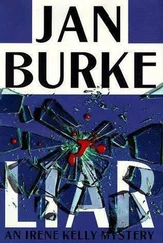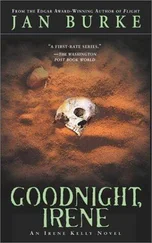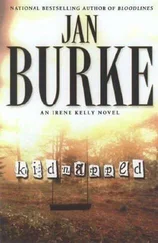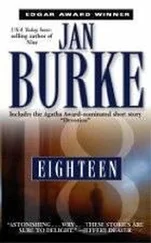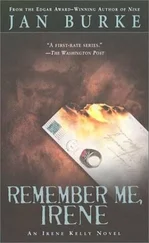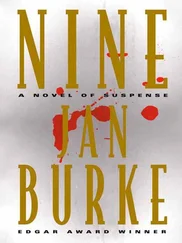He studied Vera for a moment, then said, “I’ll marry you.”
She looked taken aback. “To tell you the truth, I’d rather you didn’t.”
“I won’t have my son or daughter raised a bastard. If you don’t want to live with me, fine. If you think I’m going to ask you for…for anything else, I won’t.” He paused. “What kind of situation are you in that you can think of living openly as an unmarried woman with a child?”
“I can tell people I’m a widow. The Korean War, I’ll say. There aren’t so few widows around these days that one more will attract much attention. Besides, suppose you meet some woman you really want to marry, and you’re tied to me?”
“I won’t.”
“You don’t know that.”
He was silent.
“I can see there’s no use trying to talk you out of that prediction. Okay- suppose I meet someone else?”
“Then we can divorce, but if the man you marry has any prejudice against the child, the child will come to live with me.”
“Divorce! I thought you were Catholic.”
“I am, and I wouldn’t like it, but I won’t father a child and not give it my name. That would be worse.”
They argued for a while. He was sober now and more than able to hold his own in a verbal battle. He found himself admiring her ability to do the same. In the end, after setting down several conditions of her own, she capitulated.
They would meet at city hall the next day, witnesses in tow.
When he got back to the paper, he tried to concentrate on the story he was writing and could barely do so. The newsroom was always a noisy place-a mixture of the clatter of keys being struck, the ching of typewriter bells ringing at the end of each line, the zip of carriage returns. The sounds of pages pulled free, the shuffling of thin layers of carbon paper between sheets of cheap copy paper. Voices calling “Copyboy!” The low chug-chug-chug of the wire service Teletypes. Phones rang on empty desks. Conversations went on everywhere. If not on the phone or writing, men were making wisecracks or arguing or horsing around.
Sound and smell. Cigarette smoke hung thick in the air, along with the scent of the stale remains of takeout lunches. A good number of the room’s occupants reeked of booze, and more than a few would be half in the bag by four o’clock. Sometimes, O’Connor thought, the newsroom seemed like a bar with desks and typewriters. The paper did have a phone that, if one picked it up, rang in the Press Club, the bar across the street, to make it easier to summon staff back to the newsroom from their revered watering hole.
This afternoon, most of them were here, trying to finish stories before deadline. Summer and sweat and men under pressure. Men, and Helen Swan, who kept glancing his way. He could swear she could read his thoughts. He kept watching the door.
Corrigan had barely crossed the threshold of the newsroom when O’Connor stood up and hurried over to him. He asked him to step outside with him for a moment. Jack started to protest, but halted mid-sentence and said, “Sure. You look as if you’ve got something on your mind.”
O’Connor nodded and led the way back downstairs.
Outside in the summer heat, he told Jack about his wedding plans, and asked him to be his witness.
Jack called him every name for a fool he could think of. “Conn, how the hell do you even know it’s yours?”
“I don’t. It could be my child. It might not be.”
“If it’s not, why on earth-”
“I did something that could have resulted in a child being conceived. I have to own up to that, Jack.”
“The hell you do! Wait until it’s born and have blood tests. She’s just trying to take you for everything you’re worth.”
“I’m not worth much. Surely she could have done better than a reporter if she was looking to trap someone into keeping her in style.”
“Maybe not. You don’t know who she’s been with.”
“No, I don’t. It doesn’t matter. It’s not a trap. She didn’t even want to get married.”
“The oldest trick in the damned book. They all want to get married, believe me. Hell, it sounds to me as if this broad just wants your money, Conn.”
“If all she wanted was money, she would have asked for it from the first night I met her. Look, Jack, you aren’t going to talk me out of this one. I’ll go back inside and ask Geoff or Helen or one of the others to come with me tomorrow if you won’t. I’d like it to be you, though.”
“Conn, slow down. Think for a moment. What kind of life is that kid going to have?”
“I’ll do what I can.”
“What, keep it yourself?” Jack asked incredulously.
“No, she’s bound to give it a better life than I could.”
“Maybe not. If you find out it’s yours, then ask your mother-”
“My mother’s going back to Ireland, Jack,” he said, struggling to keep his temper. “I won’t add to her worries, and I won’t keep her here. You’re not to mention it to her.”
“Not to mention-!”
“No. Not yet. I’ll let her know when she’s in Ireland. I’ll tell her after the baby’s born.”
Jack shook his head. “You’re what now, twenty-two? Conn, you’re not thinking straight. A marriage is a legal contract. You have no idea what you’re getting into. You’re talking about throwing your life away on a whore who-” He broke off, quickly raising his hands to deflect a blow. “Damn it, Conn!”
“You’re not to talk of her that way, Jack. Never again.”
“All right, all right.”
O’Connor subsided.
“What is it?” Jack scoffed. “Love?”
“Not a bit of it.”
Jack sighed. “All your hard work, so this-this dame can have a chunk of your check?”
O’Connor said nothing.
“I wish I knew why the hell-”
“I’ve told you. It’s the child needs thinking of, Jack. Not me, not Vera. The child.”
Jack studied him. “Why do I feel as if this has something to do with Maureen?”
“Don’t,” O’Connor said, and averted his eyes.
“Conn,” Jack said sadly. “Jesus, Conn.”
O’Connor looked up again. “Will you do it or not? If the answer’s no, I’d best get busy looking for someone else.”
“I’ll be there-under protest.”
“You’ll not say a word to her that makes her unhappy,” O’Connor warned.
“Oh, not on her wedding day,” Jack said sarcastically, and turned and went back into the Wrigley Building.
When the baby was born, Vera sent word to him. A boy, named as they had compromised-Kenneth John O’Connor. He had wanted to call him Kieran, after his own father, in the Irish naming tradition used in his family, and after Jack, but she said the name Kieran was “too foreign” and so he had agreed on the name she had thought closest to it.
True to other agreements they had made, she did not live with him as his wife. He sent money. She occasionally sent a photo. More often, a change of address.
Jack was quick to point out that the boy looked nothing like him. O’Connor nearly knocked him down for that.
“Teaching you to fight was the stupidest thing I’ve ever done,” Jack said when O’Connor had regained his temper, “because you don’t know your friends from your enemies.” But after that day, Jack never remarked on the child.
In no other matter, O’Connor realized, did he keep his thoughts so guarded from Jack. Whatever they might argue about was argued openly- except for this subject. He knew this was in some part due to the fact that he didn’t fully understand his own feelings about Vera and the boy. He only knew that when he thought of Vera, he thought of what had happened in her presence-of her comforting him as he wept, certainly, but even more often of that moment in Big Sarah’s, when he felt so calm-and how, for some reason, he never worried about Maureen’s ghost feeling disappointed in him after that. He decided that even if Vera had come to him that day to say that she needed help because another man had left her pregnant, his answer would have been the same.
Читать дальше
